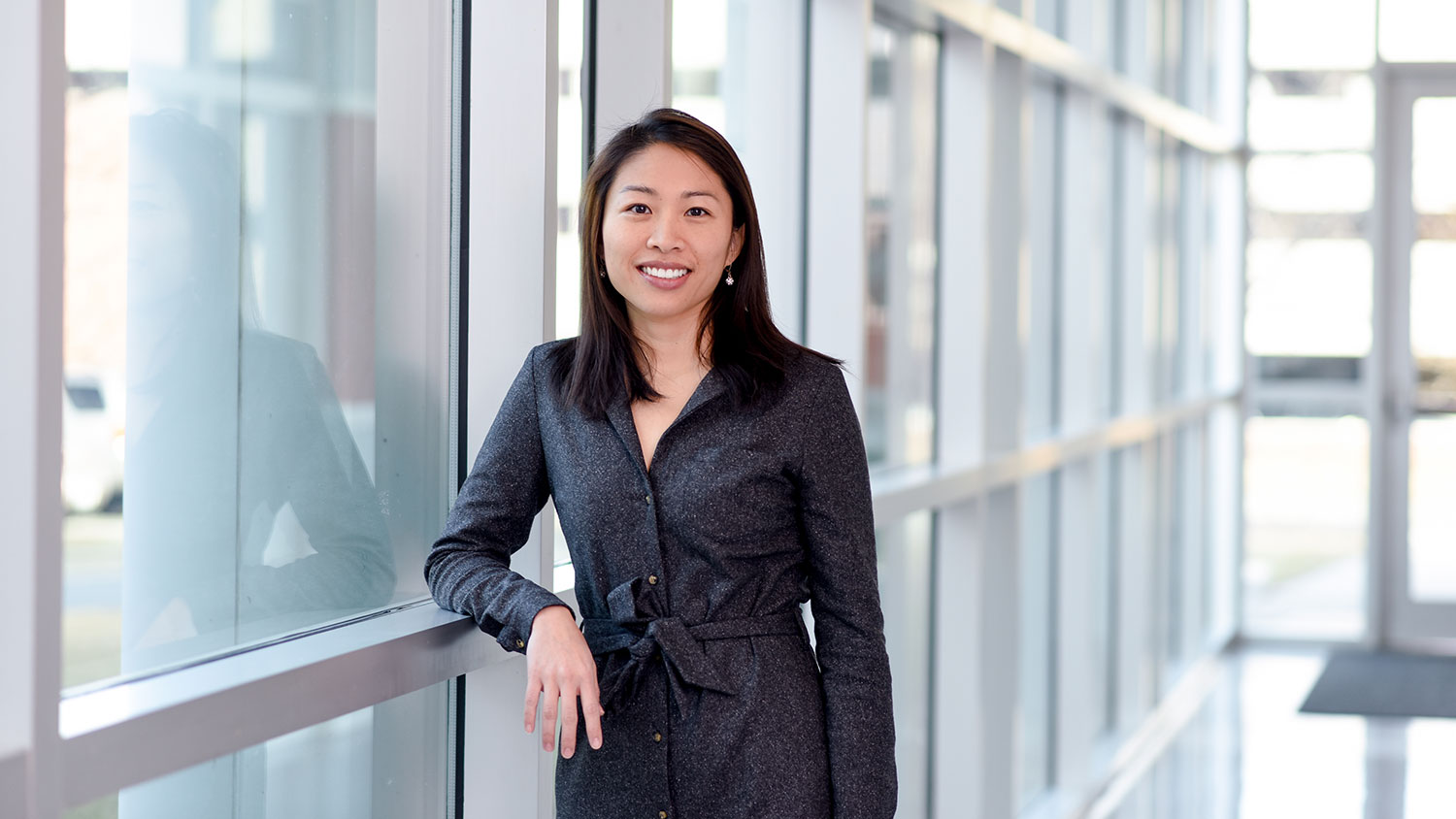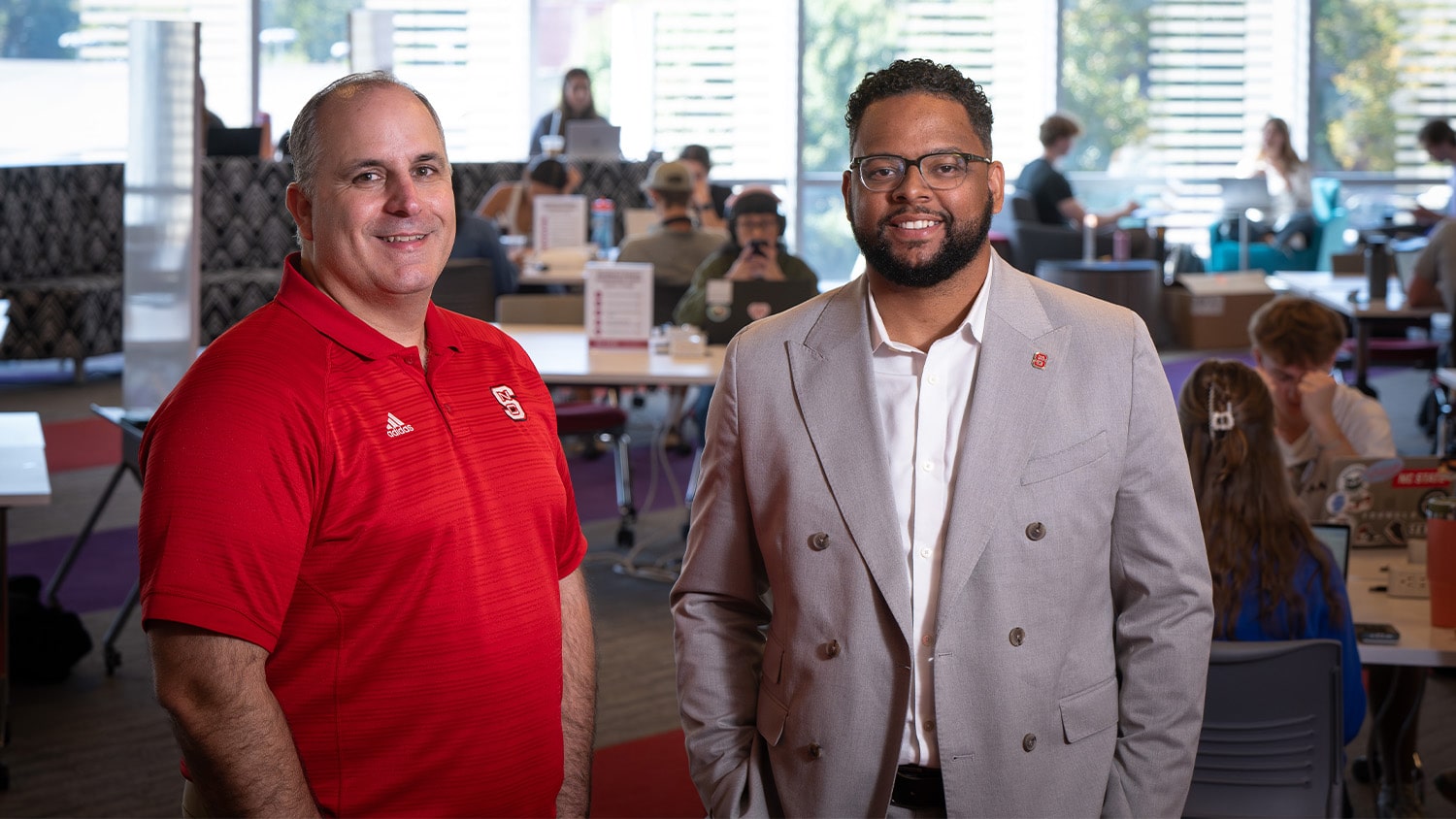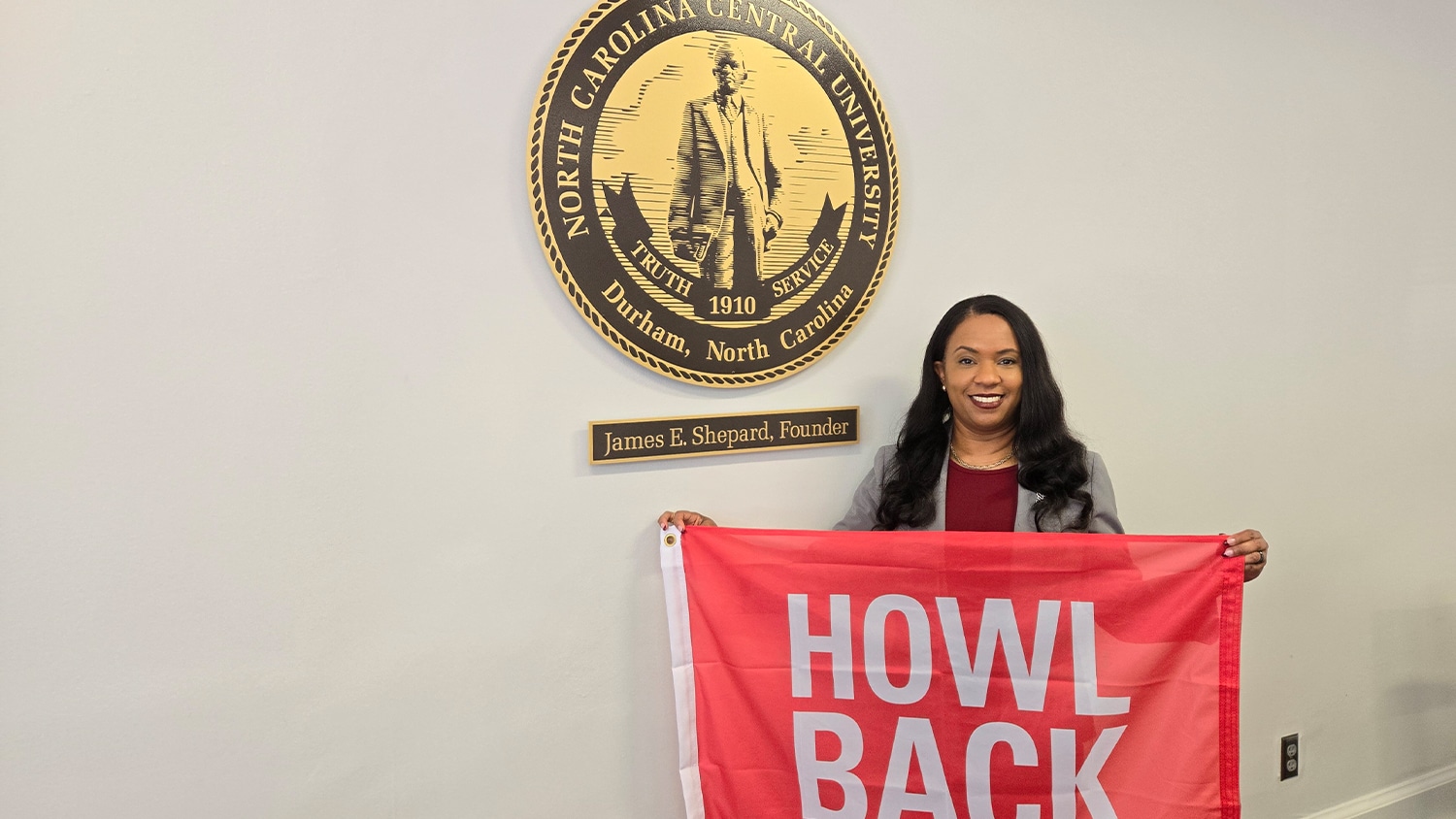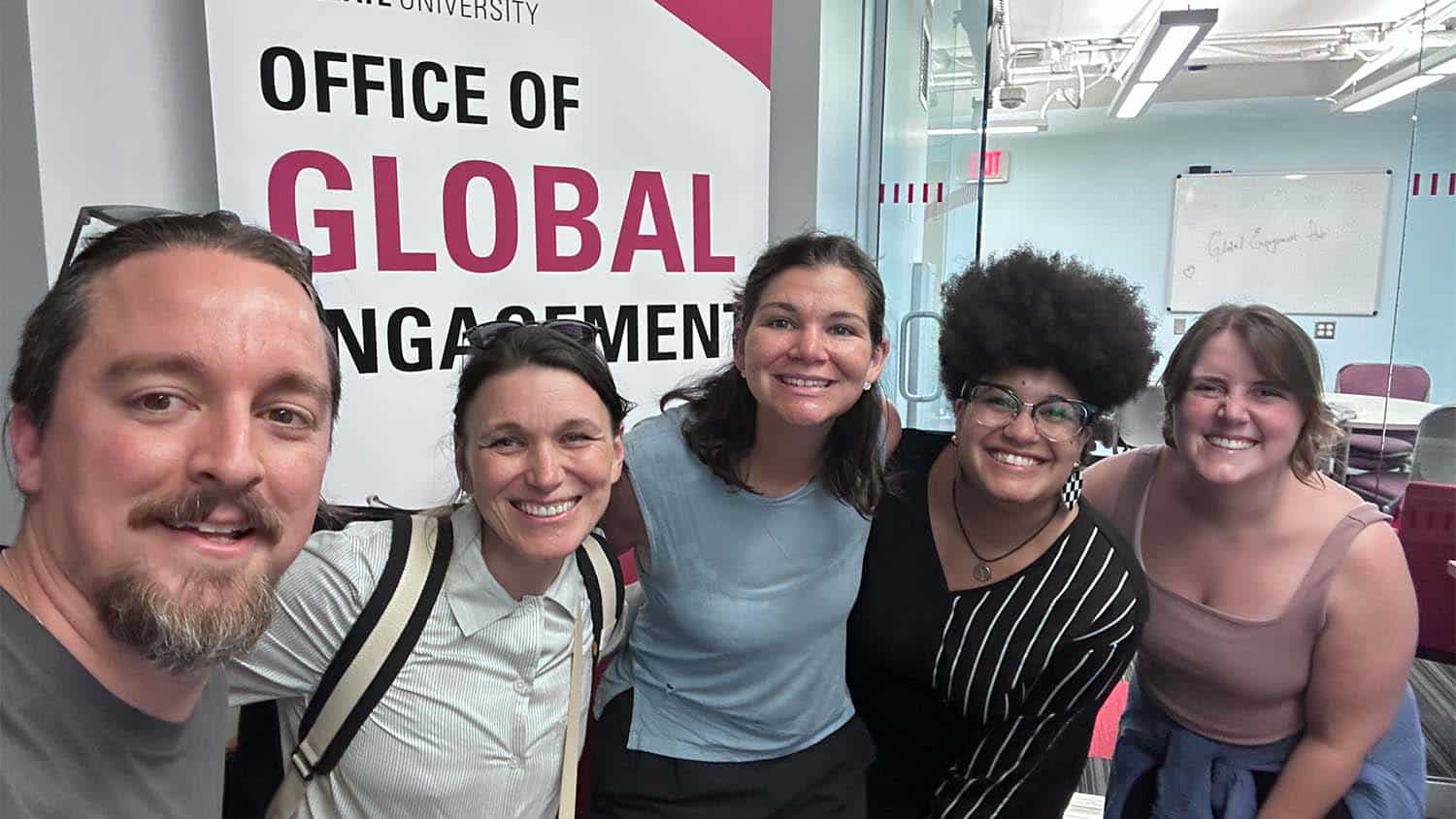Meet Lilian Hsiao
The award-winning scientist is breaking new ground for women in engineering.

If you ask Lilian Hsiao how she ended up in academia, she smiles recounting a pivotal moment along her career path.
She had just graduated from the University of Wisconsin-Madison with a chemical engineering degree and really wanted to work in industry. But it was 2007, and the country’s burgeoning financial crisis squashed those hopes. So she decided to attend grad school and pursue research.
“To summarize it frankly,” she says with a laugh, “I ended up in academia because I couldn’t get a job in industry.”
An assistant professor in the Department of Chemical and Biomolecular Engineering, Hsiao researches soft materials and complex fluids. Which means that her work has implications for everything from hair products to human health.
“That’s the really beautiful thing about doing fundamental research, because even though it may not be immediately relevant, ultimately it applies to a lot of things,” she says.
She also teaches undergraduate courses while running a lab of about a dozen graduate and undergraduate students.
AAAS recently awarded Hsiao a 2019 Marion Milligan Mason Award for Women in the Chemical Sciences, given to researchers who “have made extraordinary contributions through their research programs and demonstrate a commitment to move their fields forward.”
Read on to learn more about Hsiao and her groundbreaking work.
What made you decide to come to NC State in 2016?
When I was interviewing I was really excited by how many people worked on soft materials here, especially in this department. And also of course the fact that Duke and UNC-Chapel Hill are close by, and there are really excellent people working there too. Also, Raleigh is a very nice city. I did my Ph.D. at Michigan and my undergrad in an even colder place, Wisconsin, and my postdoc in Boston at MIT, so I thought it was time to move somewhere a little warmer. The people here are extremely collegial, and the university culture is very collaborative. That was a big draw for me.
Why did you choose your area of study?
Actually, it was the luck of the draw. When I was working on my Ph.D., I was assigned to an industrial project in which we were trying to understand why formulations would destabilize. So for example, if you think about shampoos, they have an expiration date, and it’s different from food because food would go bad, but products like shampoo would separate or clump up. So we were trying to understand why that happens at a molecular level to help companies prevent it or lengthen the shelf lives of their products. It was very interesting.
Why did you transition from industry to academia?
My work with industry focused on chemical engineering, but what we’re doing here at NC State is a new path in which we look at these materials from a biological perspective. We’re looking at human joints, which are filled with fluid that allows them to move around freely without any pain. But there are solid components too, like soft cartilage. We’re looking at fluid flow problems in the human body, which is similar to studying it in commercial products because you have a solid with a liquid lubricating it. We’re trying to find out what makes that fail, like when you have a bad knee.
The body has ways of replenishing, but cartilage doesn’t repair itself, like the way bone or skin does. Once you damage it, it’s done. So we wanted a way to look at soft materials, and we use a new chemical molecule that we get from Duke. This molecule is very special. It tells you when different forces are applied and you see it light up under the microscope. So we can use things like 3-D printing to create something that mimics cartilage.
What is the ultimate goal of your work?
I want to understand how biological systems affect the mechanical ability of cartilage and other soft materials to carry a load over a lifetime. And once we have that understanding, we want to try to design new, more rigorous and advanced types of implants that could utilize these principles to improve healthcare.
We also examine more traditional fluid mechanics problems, like the processing of particles. Particles are used in a lot of different products like oils and slurries and things like that, and there are issues with clogging if you don’t take care of the processing conditions properly. So we have ways to do polymer synthesis to make really nice articles that mimic industrial processing conditions. This is new because in our field a lot of people only focus on perfect, ideal systems that are easy to understand, but they don’t reflect actual industrial conditions.
So it’s been a really big effort in our group to bridge that gap between industry and academia. We want to make sure that our research is not too far from the very complex systems that these industries have.
How did it feel to win the Marion Milligan Mason Award for Women in the Chemical Sciences?
It felt great. It’s my first award here at NC State, and it’s really nice to see the progress and ideas of early-career female scientists being recognized.
Have you experienced challenges by being a woman in engineering?
Not outwardly, not any types of sexism, but the culture in my field tends to be a little old-fashioned. It focuses on rigor and validation of experiments in order for the community to accept the research. I feel that some females, because of upbringing or culture, believe that they cannot meet this level, which I think is false. I’m trying to convince my undergrads to be confident in themselves. The females tend to be humbler and more self- defeating. I want to change that attitude.
What’s your favorite part of your job?
There are so many things. I like seeing graduate students mature. Being able to get them to start thinking in an intellectual way is very rewarding. I like thinking about the why’s, and I think universities are among the few places left that you can still do that.
- Categories:


